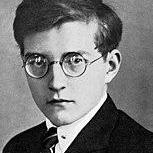
Aspiring Composer
Members-
Posts
36 -
Joined
-
Last visited
-
Days Won
1
Aspiring Composer last won the day on February 22 2019
Aspiring Composer had the most liked content!
About Aspiring Composer

Profile Information
-
Gender
Male
Recent Profile Visitors
990 profile views
Aspiring Composer's Achievements
-
Melodies are way too short! Help!
Aspiring Composer replied to shamirtheviolinist's topic in Young Composers Magazine
Hi Shamir. First of all, don't worry at all if you can't write as good as Mozart or Beethoven at the moment, and also don't worry if you think you would never be able to write as good as them. As Edvard Grieg once said, "Artists like Bach and Beethoven erected churches and temples on the heights. I only wanted... to build dwellings for men in which they might feel happy and at home.", now we all know that Grieg was a fantastic composer and he wrote so many masterpieces, yet he kinda 'confessed' himself that he was nowhere near as good as Bach or Beethoven, but this doesn't mean that he wasn't a brilliant composer. You must also consider the fact that Beethoven was studying composition since he was 9 or so, and Mozart was even younger when he started. Plus, Beethoven was almost 24 when he wrote the String Trio you mentioned. Also, you are only 14 years old! Many of the great composers (including Berlioz, Schumann, Stravinsky, and Tchaikovsky) wrote their first complete pieces when they were 20 or even older (Stravinsky and Tchaikovsky were almost 23-24 when they wrote their first serious and long pieces) and many of them were even older when they wrote their serious pieces (Borodin was almost 30 when he completed many of his pieces and Bruckner was 38-39 when he wrote pieces like String Quartet in C minor and the study symphony). Now let's talk about your problems with composition: As far as I can understand from your post, it seems like you're trying to write melodies out of nothing, and it's one of the mistakes I did when I started composing music almost a year and a half ago, and I got a 'composer's block' after writing 4 short pieces using this method of writing melodies and then harmonizing them (the pieces were all about 2-3 minutes long, and they had many flaws although I had spent several weeks on each of them). The best advice I can give you is to start studying harmony, because this is what every great composer did. You should understand how harmony works before trying to write melodies, it makes the process very easier. The book I recommend for starting is Walter Piston's Harmony textbook, it's really clear and simple and it has tons of exercises and examples from the common practice period. It also covers a lot of different topics from the very basic ones such as intervals and how chords are built, to the more advanced ones such as altered chords. Once you could understand what he says in that book, you can continue with Arnold Schoenberg's 'Structural Functions of Harmony', which is a book that I'm studying at the moment and it's definitely one of the best textbooks on music that I've ever seen. In this book he introduces the idea of regions and how you can use the chords of other regions of a tonal center systematically to create interesting progressions. He also explains a lot of great stuff about transformations of chords and vagrant harmonies and how you can use them in your progressions. Also, in the later pages of the book (which I haven't gotten to read yet) he illustrates a lot of examples to explain the concept of extended tonality and finally begins teaching some small forms (sentences, periods, etc.) and shows some examples from the repertoire. Now, after you'd finished studying harmony, you still shouldn't expect yourself to write long pieces, because you should first gain a clear understanding of musical form. There is another book by Schoenberg, titled 'Fundamentals of Musical Composition', which I'm going to study myself after the book I'm currently studying. And just by reading very fast through some of the pages of this book, it seems that he's going to explain how someone can write a long and complete piece out of a basic motive. In this book, he starts by explaining how a motive is written, and then how you can write different variations on that motive, then he gives a detailed explanation of how basic themes (sentences and periods) are written and illustrates a lot of examples from the masterpieces of the repertoire. After all of this, he explains the small ternary form and also how you can develop a theme (where he writes 25 different developments on an 8-measure theme). He also talks about other things such as the sonata form and many other things. I think it's a book which is going to help myself a lot in the future. My final advice is, just keep studying and practicing composition and never give up. It might even take you some years to figure everything out, but I think it's definitely worth it. Good luck! P.S. You can also start by studying Schoenberg's 'Theory of Harmony' instead of Walter Piston's book, but I don't recommend it. -
Not really. As Schoenberg says, they aren't even strict rules, but some guidelines that can be used to create certain effects. I don't think so, I can hear certain progressions in many works of the classical repertoire. And chords are definitely used by every composer that I know. Would you please post it here too?
-
It's a pretty good genre, I like it a lot too. I think it will be really good if you study Schoenberg's book on counterpoint, apparently he explains how to use different non-harmonic tones in imitative counterpoint and canonical melodies. Unfortunately I haven't reached those parts of the book yet so I can't give any further information. It's not bad, but as far as I can hear, you're still using passing tones for the most part. By the way, do you determine the harmony before writing your melodies?
-
Yes it was surely a compliment, the harmony and arrangement together reminded me of Yngwie Malmsteen's style, which is Neoclassical Metal. You're right, but don't be afraid to use dissonance too, even unprepared dissonance, which in my opinion can often be used to create beautiful effects. Also, I would recommend you to study non-harmonic tones more systematically if you haven't. things like passing tones (which you have already used), appoggiaturas, auxiliary tones, suspensions, échappées and cambiatas can really make your melodies more beautiful. I think we can all agree that Bach knew counterpoint better than anyone, and we must consider the fact that he was also a master of using non-harmonic tones and balancing them in his contrapuntal writing. He also tried to use dissonance as much as he could, to the point where he even used a Maj7#5 chord in his music, a type of chord which is not heard again until probably the 20th century.
-
I know, I was just confirming your statement. What I said about serial music was partly a joke, but at the same time I feel that a lot of serial music do sound the same, or at least evoke the same type of feeling. Well it's true that he wrote a lot of tonal music as well as 'free' atonal music, but since he was the first composer who composed a 12-tone piece and also wrote a great deal of them too, I can call him a serial composer. Actually one of the best serial works that I've heard is Schoenberg's Piano Concerto.
-
Interesting, maybe I'll turn this into a Symphonic Poem someday 🙂 You're right, but I don't think it's necessarily a bad thing. Even some of the greatest composers in history such as Beethoven or Brahms quoted the composers of their past directly in some of their works and sounded similar to them, as well. Some musicians even accused Shostakovich of plagiarism. Also, as we all know, many musicians say that the only remaining path for composers nowadays is writing serial music. But in my opinion, it's the easiest way to sound like a lot of other composers. You're basically ripping off Schoenberg when you're writing serial music 😄
-
Thanks You're right. As I mentioned earlier, I didn't even know harmony properly when I wrote this piece, let alone developing the theme. I don't know, I think they've helped me in some ways. By the way, concerning my other question about form and length, do you think I could turn this into a 6-7 minute piece if I knew how to develop the main theme? Or do you think it would have needed some other material too, in order to reach that length? p.s. I was listening to Rimsky-Korsakov's Scheherazade the other day, and I noticed that a fragment of the main motive of Nyctophilia is present in Scheherazade (It's present in all 4 movements, as well as the beginning of the second movement). It's interesting for me, because I hadn't heard it when I composed Nyctophilia, although I used a different harmonic progression and ended it differently.
-
some questions about orchestration
Aspiring Composer replied to Aspiring Composer's topic in Advice and Techniques
It's been almost a year and a half since I started, that's why I'm composing music 🙂 Anyway, I think we're not really talking about orchestration anymore 😄 -
some questions about orchestration
Aspiring Composer replied to Aspiring Composer's topic in Advice and Techniques
Thank you for your advice. Thanks, I'll try it. I personally think that studying until you can write new pieces systematically is very important. Even Beethoven stopped composing music for a couple of years before 1792, although he was composing since he was 12 or so (as far as I know, he even had a counterpoint teacher towards the end of his life). Bruckner and Poulenc did a similar thing too. Now don't get me wrong, I composed a new piece about two months ago, and I've also composed some new themes since then, but I still think I need to study more in order to write more mature pieces. I disagree, I think studying books really helps the way you write music and think about it. Even though I haven't studied much about form yet, studying Schoenberg's and Piston's books on harmony alone have changed the way I write music and think about it, very deeply. Well, that's just my opinion. -
some questions about orchestration
Aspiring Composer replied to Aspiring Composer's topic in Advice and Techniques
@mark styles This is actually what I'm trying to do until the next year or the year after that. I think my main problem is that I haven't analyzed any of the masterworks yet, which I think is something that everyone who wants to become a composer should do. -
some questions about orchestration
Aspiring Composer replied to Aspiring Composer's topic in Advice and Techniques
@pateceramics Actually my old pieces are all orchestral, and I've shared one of them here https://www.youngcomposers.com/t37439/nyctophilia/ I kinda agree that composing is a good teacher itself, but I mostly think that studying a lot before starting to compose again is really good. There were many great composers who did this, the best examples that come to my mind are Bruckner, Tchaikovsky, Stravinsky, Borodin and Poulenc, who studied for several years before starting to compose their serious pieces, or at least starting to compose after some years of hiatus. -
Hello everybody. I'm trying to begin learning orchestration. My question is, how much do I need to know about counterpoint in order to write a good orchestral piece? Would knowing the few rules of part-writing be sufficient for writing an 'acceptable' orchestral piece?
-
Yes, I think it worked pretty good as a single-movement work. I agree, even Beethoven quoted Mozart in a number of his works. I personally believe that Mozart quoted other composers too, perhaps unconsciously. For example, there is a harmonic progression in the 2nd theme of the 1st movement of his 12th Piano Sonata that reminds me of the 3rd movement of Vivaldi's Summer.







